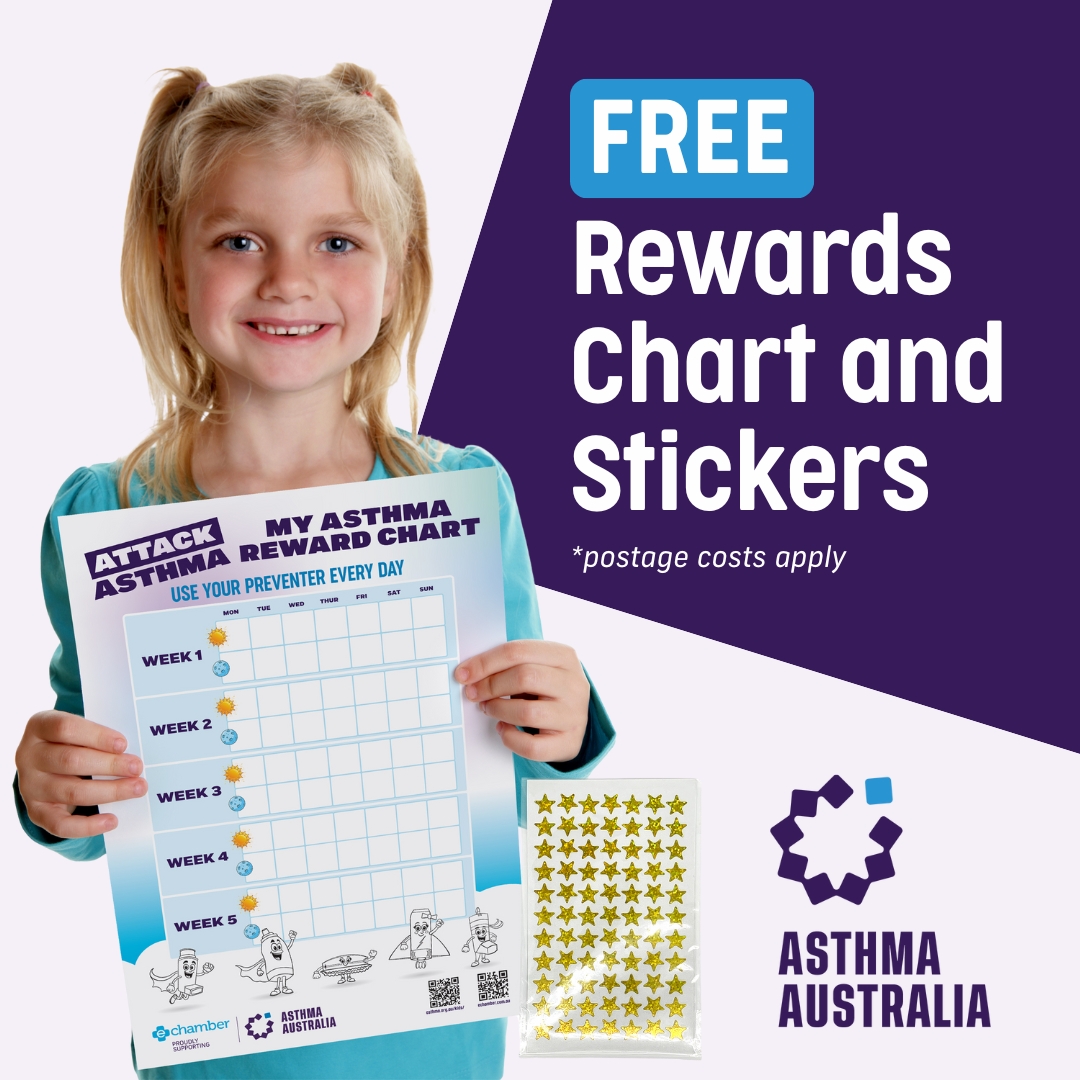Before Harrison Betts hits the dancefloor for his regular hip hop classes, he knows he just has to have his puffer.
The active 10-year-old from Adelaide Hills town of Mount Barker enjoys his school sports and other activities in spite of the challenges his asthma can bring.
His mum Mandy Betts says Harry’s asthma can be induced by exercise – as well as viruses, temperature changes and some other triggers – but they manage the condition in line with his personal Asthma Action Plan.
“He does hip hop dance, which is great for his asthma,” she says.
“It’s indoors and the temperature is regulated.
“We just give him a dose of reliever 15 minutes prior [to his exercise] and if he needs it, if he becomes short of breath during the exercise, then he will either tell the teacher at school or he will go and self-medicate [at dance class].”
It’s a very common questions for parents of children with asthma – can they exercise?
Exercise-induced asthma can be a concern for people with asthma but with a personalised written Asthma Action Plan in place, exercise can be positive for your overall health.
Tara Buckley, 29, has experienced severe asthma from the age of five. Flare-ups and hospital stays became a regular feature of her childhood.
As a child she always tried all the school sports, despite concerns from her parents. “I would do the cross-country and every teacher around me would have to have a puffer,” she says.
Now as an adult she has learned to manage her condition and six years ago she became a personal trainer. She hasn’t had a major asthma flare-up or been hospitalised in more than four years.
She says people can really benefit from sports, both physically and mentally.
Don’t be afraid to start exercising. Speak to your doctor to work out a plan to suit you.
Asthma has also spurred some elite athletes into pursuing sports, including three-time Olympic swimmer Samantha Riley, 400-metre runner Cathy Freeman and swimmers Taylor and Kaylee McKeown.
People with asthma and even those without asthma can have exercise-induced bronchoconstriction, where the airways narrow and may become blocked with mucous.
Asthma doesn’t mean you should avoid exercise. You just need a plan to help you manage it!
Recent research has confirmed exercise can reduce inflammation in the lungs of people with asthma in addition to the other general health benefits.
Researcher Professor John Upham says the moderate intensity exercise was believed to be better than intense for people with asthma.
He also says exercise-induced wheeze can often be prevented using the right medications and a good warm-up routine.
How to prepare your child with asthma for sports
Whether it is the school athletics day, the swimming carnival, regular sports or even running around in the playground, most children with asthma will be able to participate and have fun.
If exercise is a trigger for your child make sure it is in their written Asthma Action Plan, and the school and teachers are made aware of it.
Mandy Betts says they update Harry’s written Asthma Action Plan at least three times a year and keep a reliever puffer at the school, and a spare in Harry’s bag, just in case.
“The classroom learning seems to be fine, but it is the spontaneous fitness or PE that can play havoc with his asthma,” she says.
“There’s a lot hinging on everyone being aware of Harry’s Asthma Action Plan, because it’s tailored to him.
“I know our school will follow that. They know his episodes can be significant. They advise me every time he does need asthma medication at school, in case we end up at the doctor.”
What to do if your child has exercise-induced asthma at school?
Make sure you and your child with asthma are ready.
Download the Back to School Checklist and work through the steps. Speak with your child’s teachers and double-check they’re aware of asthma and your child’s written Asthma Action Plan.
Talk to your child about their asthma and remind your child how to manage their asthma at school, especially before and after sports.
And make sure you keep up with asthma prevention throughout the school holidays even when feeling well.
For Harry and his family, living with asthma means regular check-ups, consistent monitoring of symptoms and letting everyone around them know what to do to manage the condition.
But it also means he can do a day-long hip hop practice and stay well.
“It’s being aware of the symptoms,” she says. “He loves his hip hop.”
If you have questions about asthma in children or asthma in schools, check in with your doctor or contact one of our Asthma Educators.
Asthma Australia’s Back to School campaign
We want to halve avoidable hospital presentations for asthma by 2030.
Part of this goal means providing education and resources to parents, carers, health professional, educators and schools to manage asthma prevention for children.
Asthma doesn’t go on holidays. So it’s important to keep up your child’s asthma prevention throughout the break, and once they are back to school.
Visit our website for more information and resources about asthma in children.
Partners
echamber and Flo are campaign partners of Asthma Australia and have not been involved in the development of this web page/content.





 1800 278 462
1800 278 462





